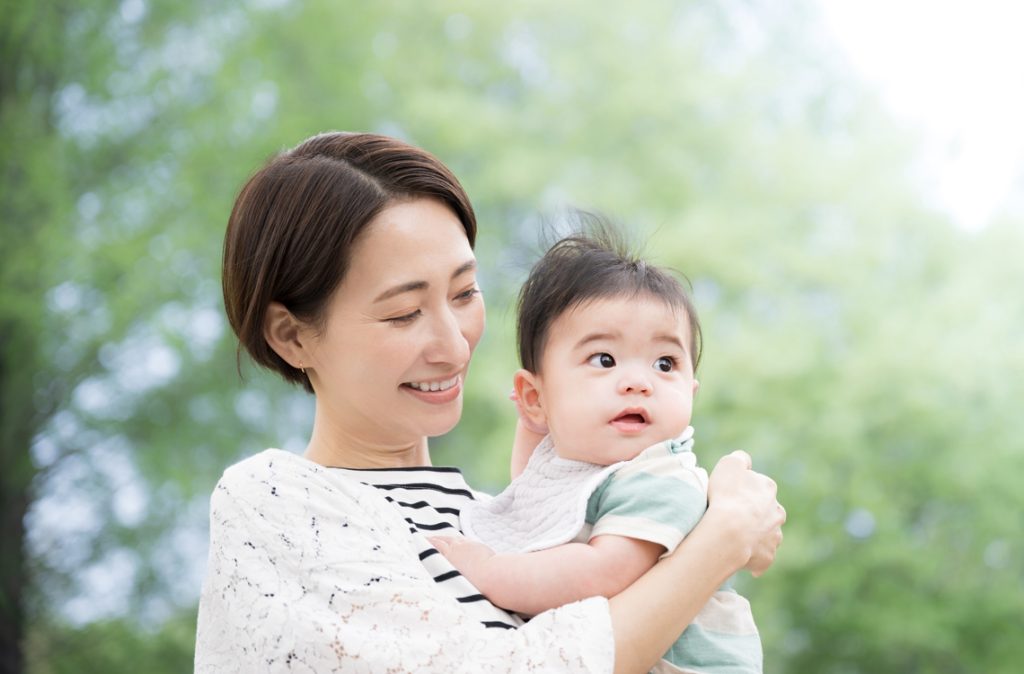For some, motherhood comes like a lightning strike, a honeymoon pregnancy, an overnight miracle.
For others, it is a road wrought with years of uncertainty, countless attempts and heartbreak.
Many abandon the quest for motherhood as soon as the clock strikes forty. Your eggs all shrivel up and die and your womb becomes a wasteland.
After all, isn’t that what science has been telling us for decades? Women past a certain age should never have babies (it’s simply too dangerous).
One mother has defied those odds, showing us that science only has half the answers. Named the oldest mother in Singapore, 55-year-old Suan Bailey proves that it is never too late for motherhood.
Here’s her story.
The Story of Suan Bailey
Suan’s quest for motherhood began in 2010 when she married the love of her life at 40 years old. Paved with disappointments, her journey to motherhood was anything but easy.
Unable to conceive naturally, and fearing that her biological clock had stopped ticking, she gave up on the idea of motherhood. Even with the option of artificial reproduction, Suan was discouraged by family members.
It wasn’t until she visited her brother and fell in love with her baby nieces that the maternal spark reignited. She would be a mother no matter what. She is now a proud mother of one.
Suan’s story is one of hope and perseverance, and it will continue to inspire many others in the future. And as it so happens, she is not alone. More and more Singaporean women are becoming mothers later in life.
Late Motherhood: The Statistics
Modern medicine and technological advancement has not just prolonged our lives and defeated countless diseases, it’s also pushing the boundaries of what we thought was possible when it comes to reproduction.
More women in Singapore are having children later in life, and that age is going further and further than what was originally throught to be the cut-off point.
In 2023 alone, 19 women aged 50 or older became mothers, successfully carrying pregnancies to term. This is a huge leap from past numbers. Between 1989 to 2009, only six women past 50 had babies, according to the Immigration and Checkpoints Authority.
Between 2010 and 2019, this number only grew five times with 33 women embracing late motherhood.
These numbers reflect a changing norm; the age boundary for motherhood is slowly shifting.
More women are choosing career, stability, and emotional readiness before starting families. While late motherhood is still rare, it’s no longer unthinkable.
If you’re at or over the age of forty and thinking about having a child, there may be hope for you yet. But here are a few things you should know first about what it will take to achieve that dream.
Motherhood After Forty
It is undeniable that pregnancy after 40 carries risks; science pretty much has that correct at least. After a certain age, fertility drops, the body ages, becoming less hospitable to new life.
Complications become more common especially when we think about the myriad of conditions that older women tend to have.
In 2012, when Suan Bailey first tried to conceive, there was a limit. Women could only undergo assisted reproduction up to age 40. Ten cycles, that was the maximum. This rule recently changed on 1 January 2020.
Now, women over 40 can pursue assisted reproduction freely. It gave many prospective mothers like Suan a second chance.
But the risks remain. Older mothers face a higher chance of miscarriage, high blood pressure, and gestational diabetes.
Coupled with the astronomical financial requirements for assisted conception, the road to late motherhood is paved with obstacles. But as we saw with Suan, it is not impossible.
Here’s how she managed to do it.
The Realities of Late Motherhood
After learning about the cut-off age, Suan had to look for loopholes. As providence would have it, she later learned about a doctor in Bangkok from an acquaintance who also had a successful late pregnancy at 45.
Suan did not think twice; she packed her bags and booked the plane ticket.
The fertility regimen was extensive, she had to go through several treatments to improve her reproductive health. After a first failed implantation, second time was the charm for Suan.
Suan’s husband made sure she stuck to the rigorous lifestyle changes including a healthy diet and exercise. But the battle was far from over; much like other women her age, she was at-risk of many complications including pre-eclampsia.
Her son, Remy, was born prematurely at 35 weeks, but the worse was over. Today, he is a happy and healthy three-year-old.
The overall cost roughly added up to around SGD50,000, including travel and accommodation.
Late Motherhood is Still Motherhood
Motherhood after forty is not for the faint-hearted.
It comes with greater health risks, emotional strain, and financial burden. But it also comes with joy, strength, and deep love.
Suan Bailey’s story proves that it’s never too late to become a mother.
It may take grit, sacrifice, and support—but it’s possible. As science advances and mindsets evolve, more women may choose motherhood later in life.
Their journey may be longer and harder, but the destination is just as sweet. Because at the end of the day, motherhood is still motherhood, no matter what age you are.
Disclaimer: The information provided in this article is for informational purposes only and should not be considered as medical advice from Mamahood. For any health-related concerns, it is advisable to consult with a qualified healthcare professional or medical practitioner.
For more insightful stories and parenting advice, stay tuned to Mamahood Singapore!
